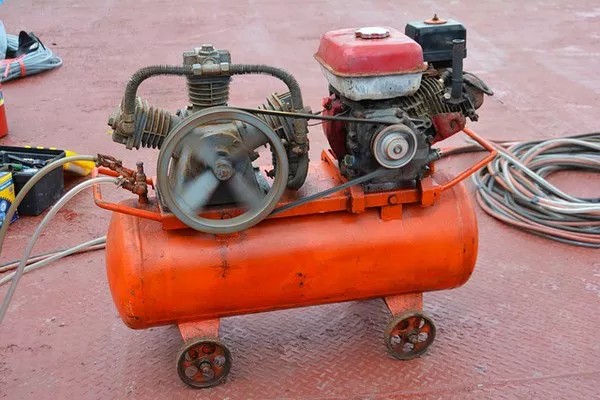In the realm of modern home comfort, central air conditioning systems play a pivotal role in maintaining pleasant indoor temperatures during scorching summers. At the heart of these systems lies the central air compressor, a critical component responsible for cooling the air before distributing it throughout the house. However, like all mechanical components, central air compressors have a finite lifespan. This article delves into the factors influencing the longevity of central air compressors and explores ways to extend their operational life.
Understanding Central Air Compressors
Central air compressors are the workhorses of central air conditioning systems, responsible for the refrigeration cycle that cools and dehumidifies indoor air. The compressor functions by pressurizing the refrigerant, initiating the heat exchange process that absorbs heat from indoor air and expels it outdoors. This process results in the cooling of the air circulated throughout the home.
Central air compressors come in various types, including reciprocating compressors, scroll compressors, and rotary compressors. Each type has its unique design and operational characteristics, but they all share the common goal of ensuring optimal cooling efficiency.
Factors Influencing Lifespan
The average lifespan of a central air compressor typically ranges from 10 to 15 years, but this estimate can vary significantly based on several factors. Recognizing these factors and taking appropriate measures can significantly extend the operational life of a central air compressor.
1.Quality and Brand: The quality of the central air compressor and the reputation of the manufacturer can impact its lifespan. High-quality compressors from reputable brands often feature better materials, precision engineering, and enhanced durability.
2. Maintenance: Regular maintenance plays a pivotal role in prolonging the lifespan of central air compressors. Routine inspections, cleaning, and lubrication can prevent wear and tear, ensure efficient operation, and catch potential issues before they escalate.
3. Usage Patterns: The frequency and duration of system usage influence how hard the compressor has to work. Systems used excessively or in extreme temperatures might experience more strain, potentially leading to accelerated wear.
4. Climate Conditions: Central air compressors operating in extreme climates, such as constant high temperatures or corrosive environments, may experience accelerated deterioration. Extreme conditions can lead to overheating, compressor strain, and premature failure.
5. Installation Quality: Proper installation by experienced professionals is critical for the long-term performance of central air compressors. Incorrect installation can lead to operational inefficiencies, increased strain, and early failure.
6. System Sizing: Oversized or undersized systems can strain central air compressors. An improperly sized system may cycle on and off frequently, subjecting the compressor to unnecessary stress.
Signs of Compressor Aging
As central air compressors age, certain signs may indicate that they are nearing the end of their operational life. Recognizing these signs early can help homeowners plan for repairs or replacements and avoid sudden breakdowns:
Reduced Cooling Efficiency: If your home isn’t cooling as effectively as it used to, it could be a sign that the compressor is struggling to perform optimally.
Higher Energy Bills: As compressors age and become less efficient, they may consume more energy to maintain the desired indoor temperature, leading to increased energy bills.
Unusual Noises: Clanging, banging, or grinding noises coming from the compressor can indicate mechanical issues that require attention.
Frequent Cycling: If the compressor is cycling on and off more frequently than usual, it might be a symptom of an underlying problem.
Leaking Refrigerant: Refrigerant leaks can compromise the cooling efficiency of the system and should be addressed promptly.
Extending Lifespan through Maintenance
Proper maintenance is key to extending the lifespan of central air compressors. Here are some maintenance tips to consider:
Regular Inspections: Schedule annual professional inspections to identify potential issues and perform routine maintenance tasks.
Airflow and Filtration: Ensure proper airflow by keeping vents and registers unobstructed. Clean or replace air filters regularly to prevent debris from clogging the system.
Lubrication: Some compressors require lubrication to function optimally. Follow manufacturer guidelines for lubrication intervals and type.
Coil Cleaning: Keep the condenser and evaporator coils clean to maintain efficient heat exchange.
Professional Tune-Ups: Hire HVAC professionals to perform regular tune-ups, including checking refrigerant levels, electrical connections, and overall system performance.
Timely Repairs: Address any issues promptly rather than letting them worsen over time. Ignoring minor problems can lead to larger, costlier repairs.
Knowing When to Replace
Despite diligent maintenance, central air compressors will eventually reach the end of their lifespan. When considering replacement, homeowners should take into account factors such as the cost of repairs, energy efficiency improvements, and advancements in technology. Upgrading to a new, energy-efficient compressor can lead to lower energy bills and enhanced cooling performance.
In conclusion
central air compressors are the beating heart of central air conditioning systems, providing comfort during sweltering summers. Understanding the factors that influence their lifespan and implementing proper maintenance practices are crucial steps toward ensuring their optimal performance and longevity. With proactive care and timely attention, homeowners can enjoy reliable cooling for years to come, making the most of their investment in home comfort.

